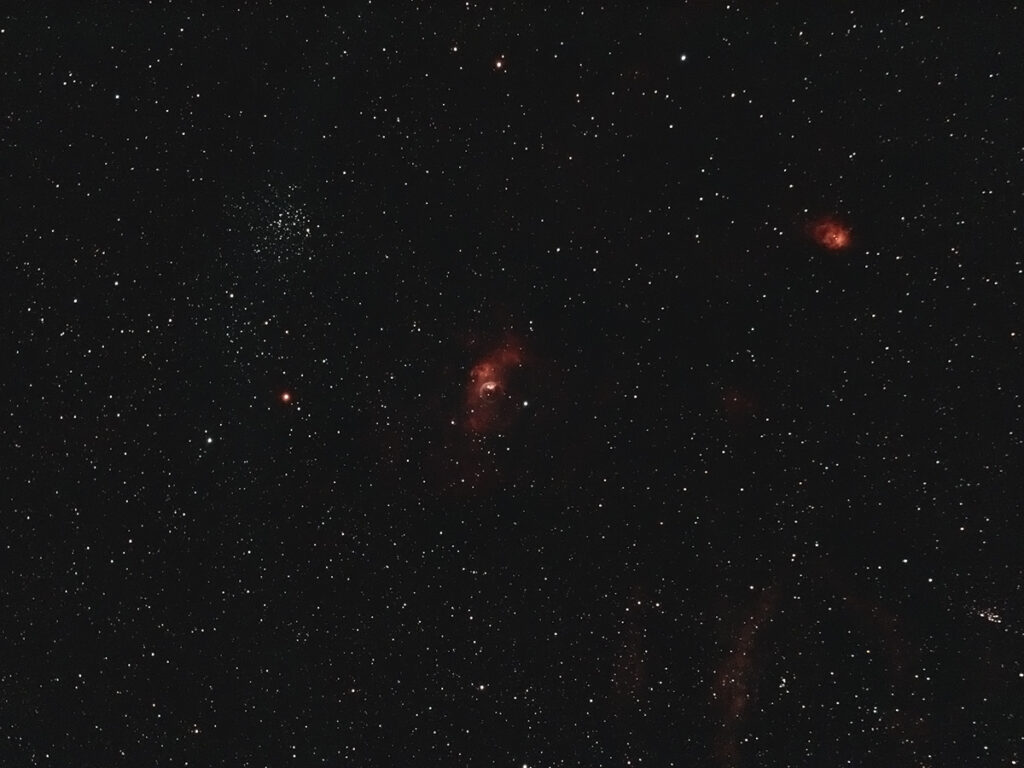
Telescope: ES Comet Hunter MN6 at f/4.8, Orion Atlas EQ-G
Camera: Baader modified Nikon 610
Filter: 2” Radian Triad Ultra Hb, OIII, Ha, SII filter
Guide scope: Williams Optics 50mm, ASI290MM mini, PHD
Exposure: 15x180sec, ISO 400, saved as RAW
Darks: Internal (Long Exposure Noise Reduction On)
Flats: 64×1/5sec, tee shirt flats taken at dusk
Average Light Pollution: Red zone, Bortle 8, poor transparency, moonlight
Lensed Sky Quality Meter: 18.0
Stacking: Mean with a 1-sigma clip.
White Balance: Nebulosity Automatic
Software: Backyard Nikon, Nebulosity, Deep Sky Stacker, Photoshop
NGC 7635 is almost the inverse of a planetary nebula. Planetary nebula are expanding shells of gas shed from a dying star. The Bubble Nebula is formed from the intense radiation a hot blue star pushing out a sphere in the surrounding gas, making an empty bubble and setting the hydrogen aglow with a beautiful red color. This wide field view includes the open clusters M52 (upper left) and NGC 7510 (lower right), and the emission nebula NGC 7538 is to the upper right.
The Bubble Nebula rises in the northeast late in the evening and is high overhead at dawn.
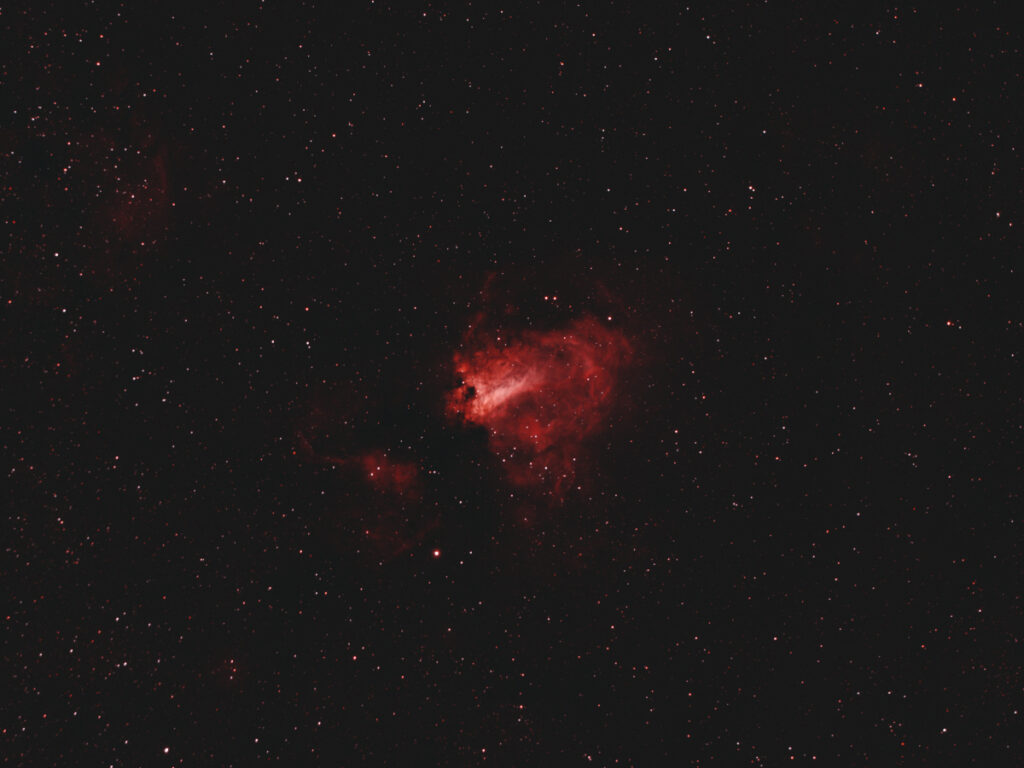
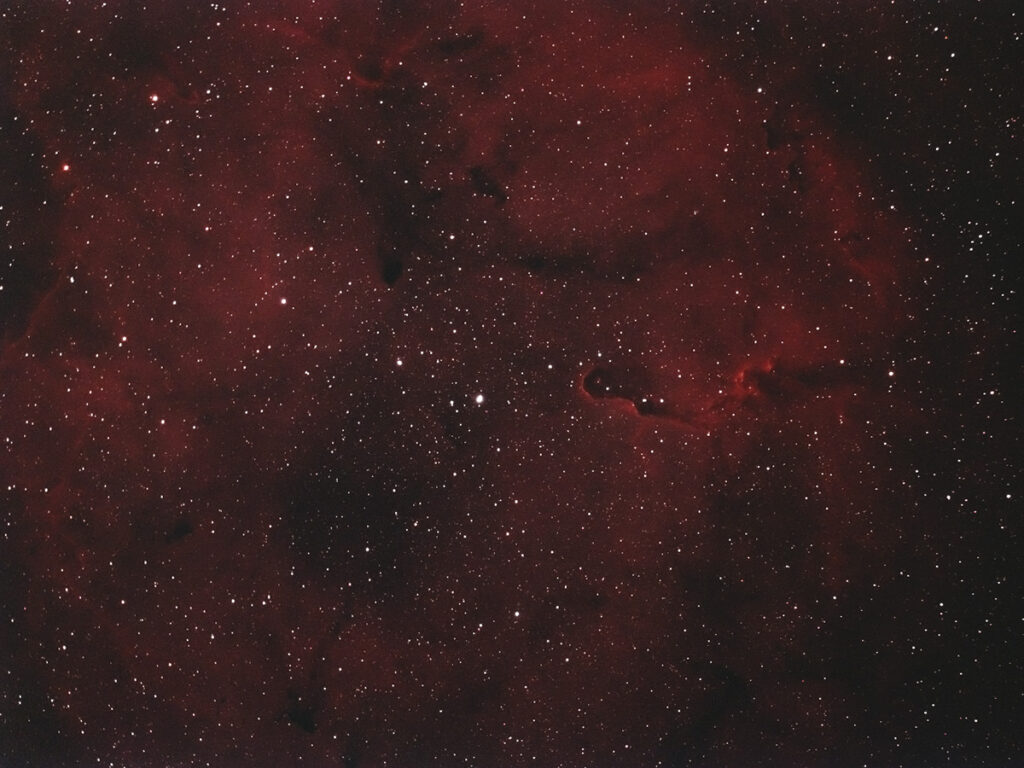
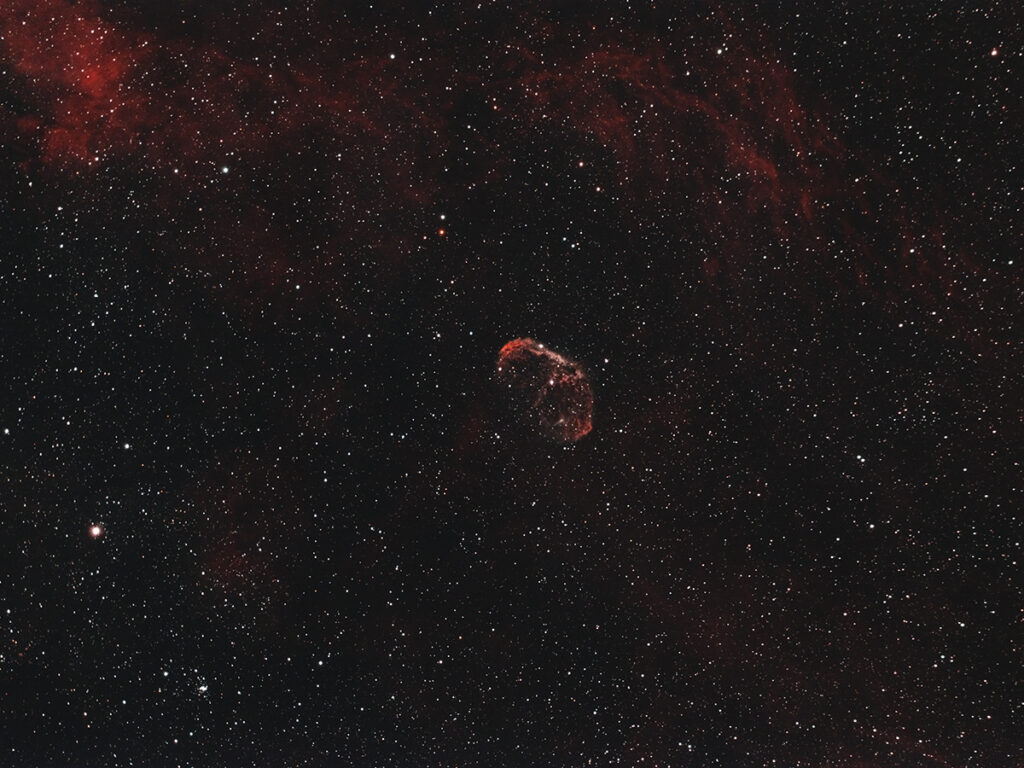
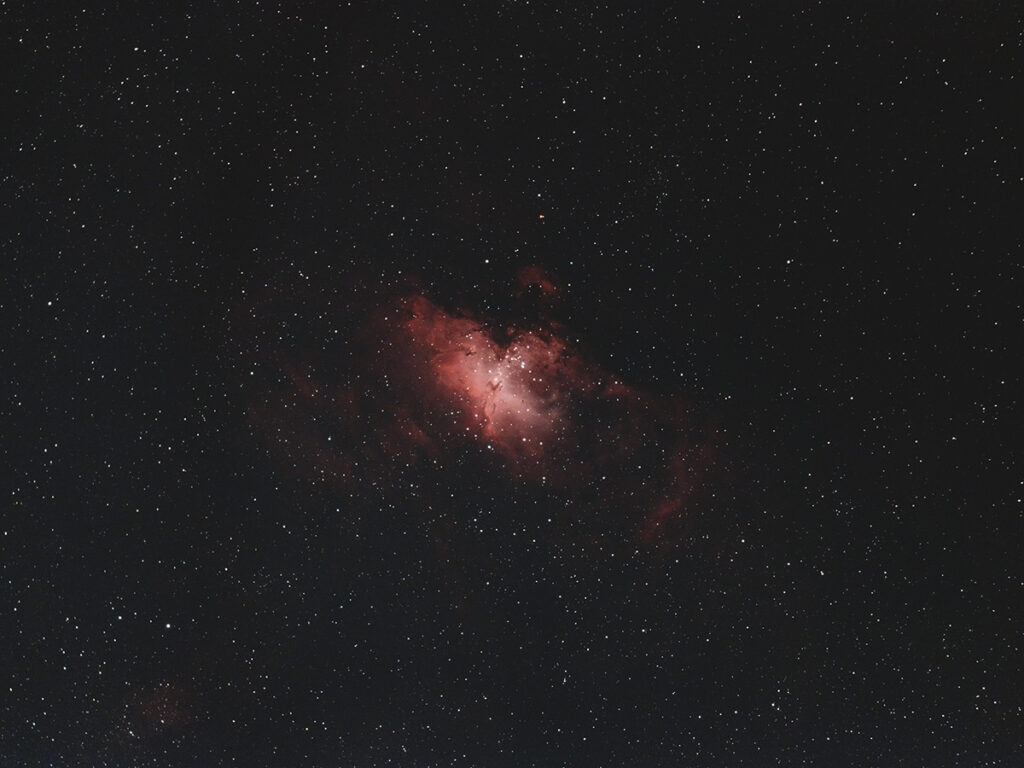
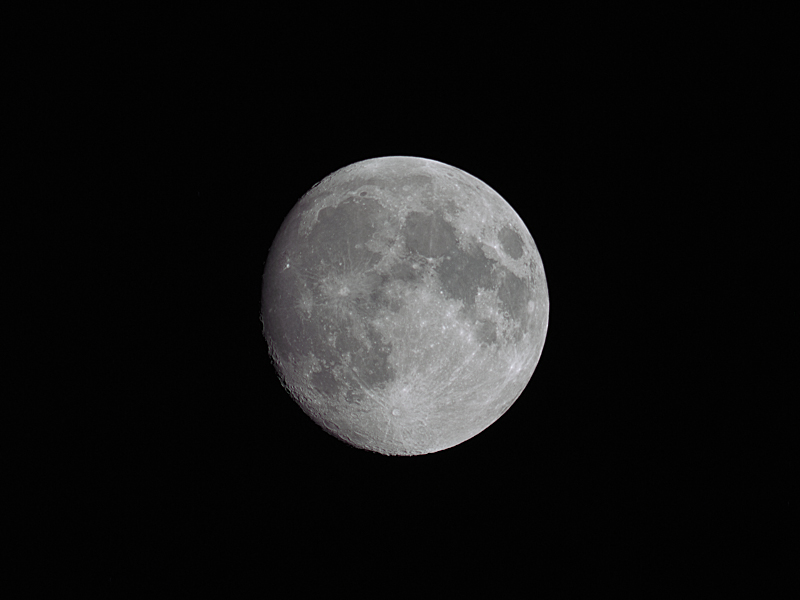
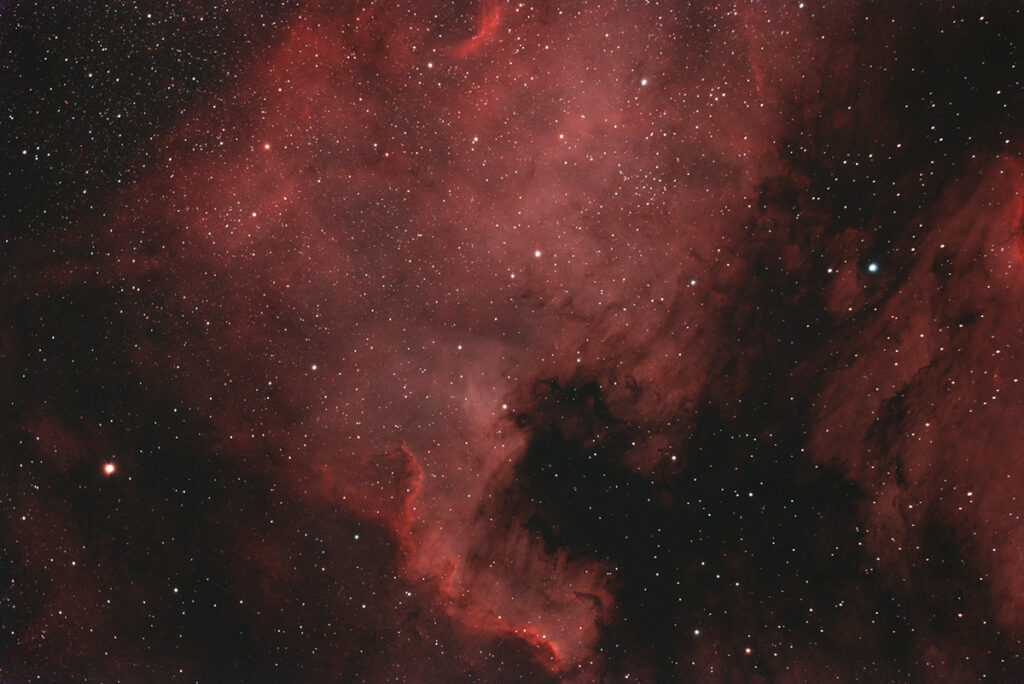
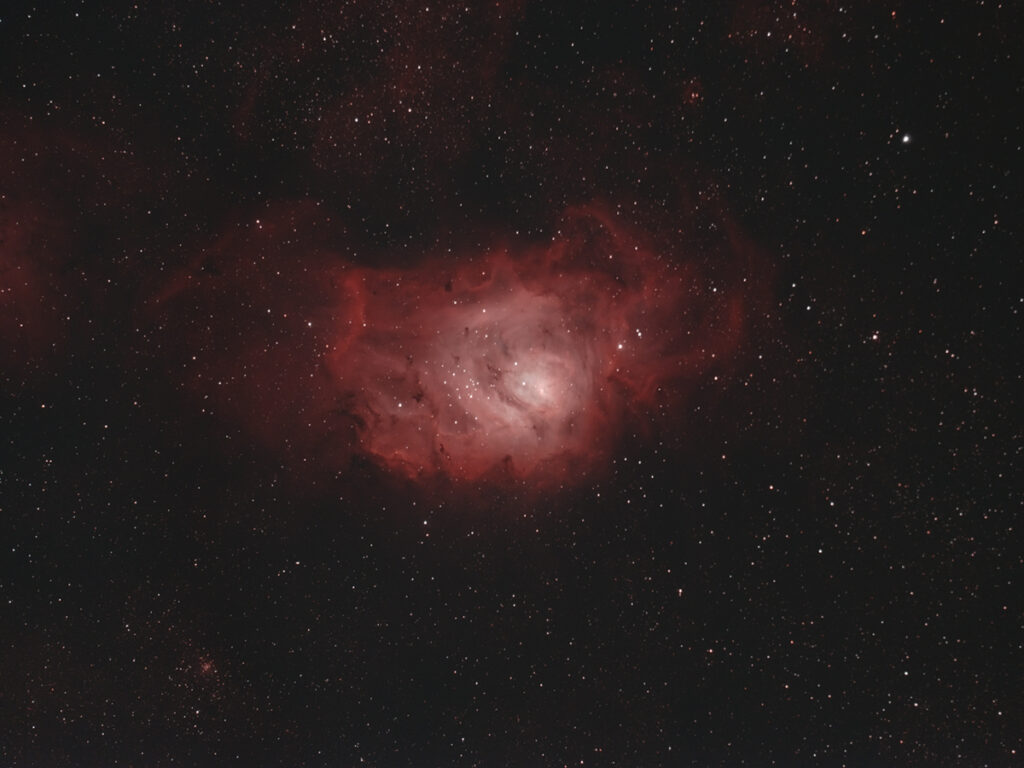
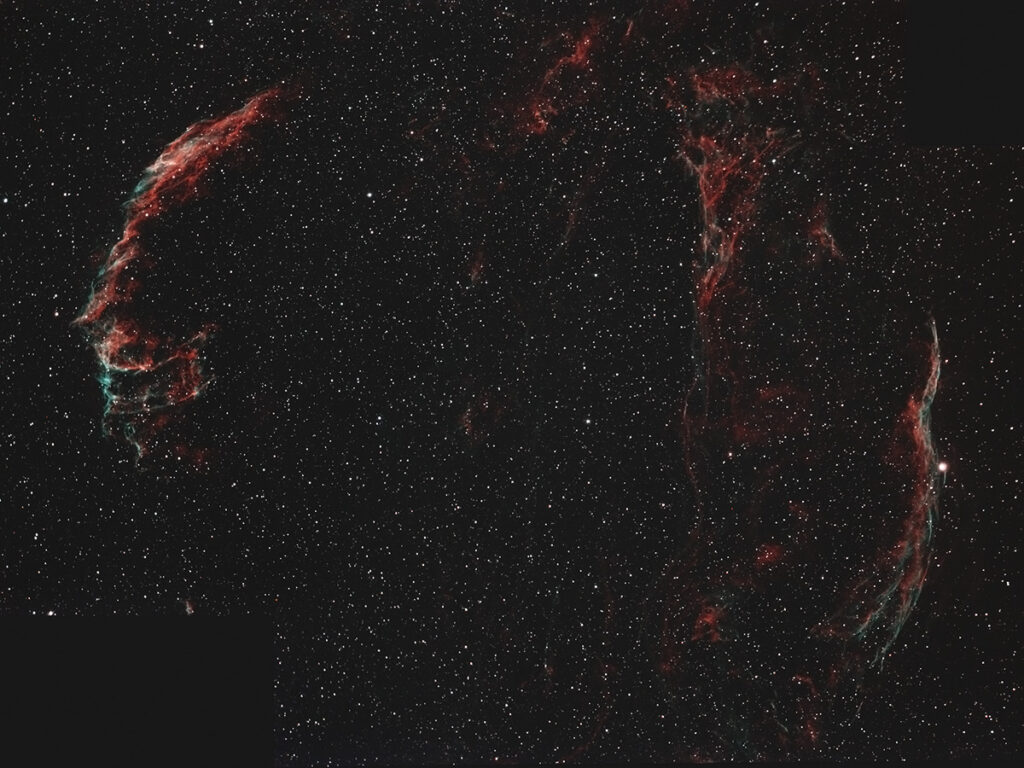
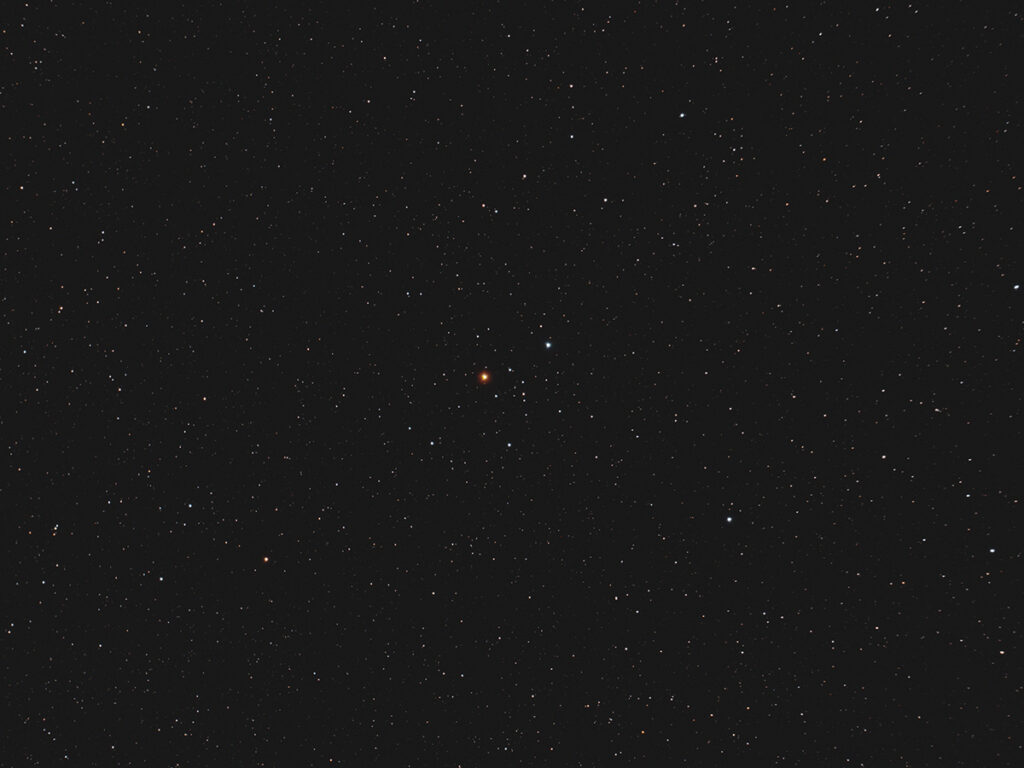
Recent Comments